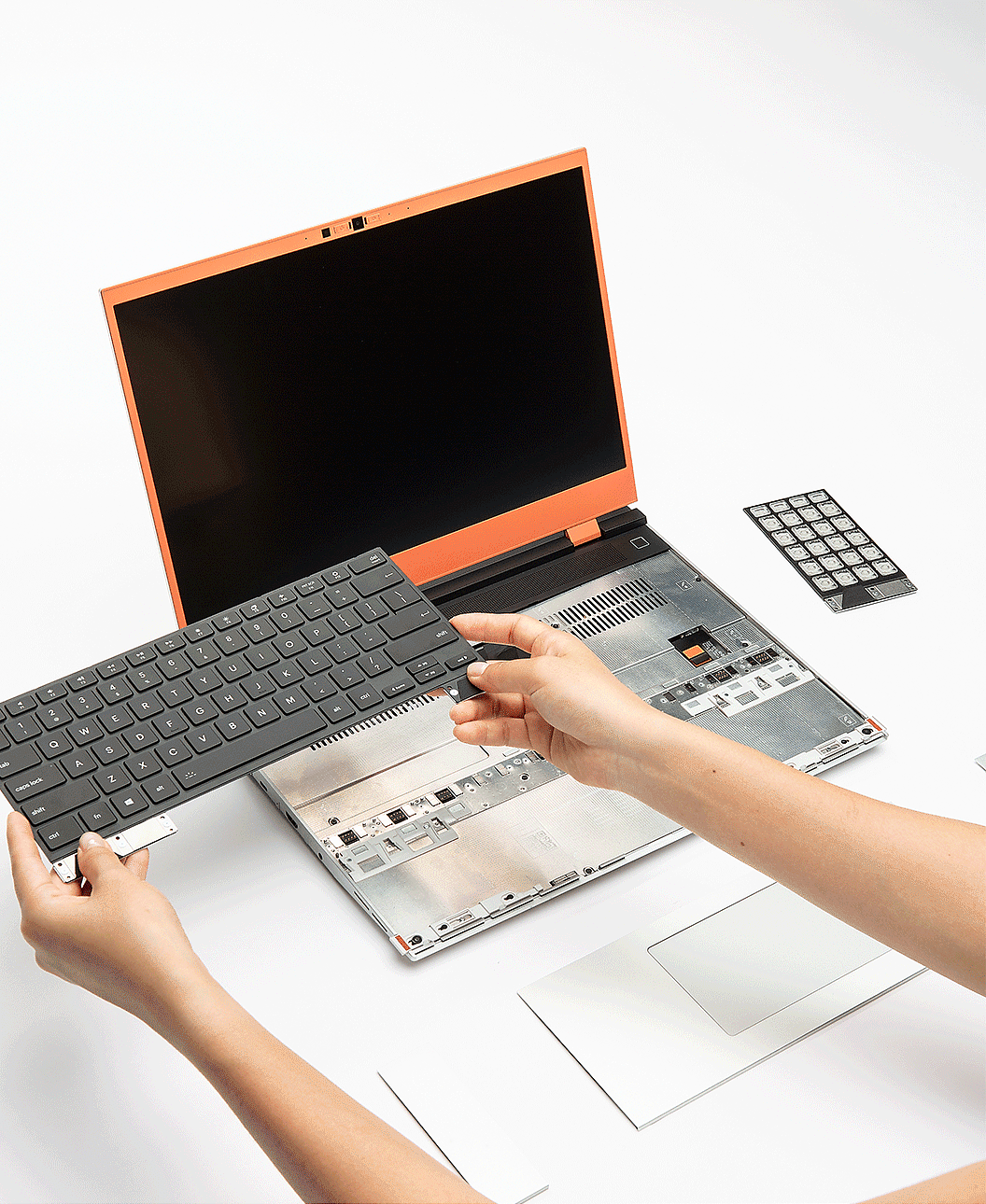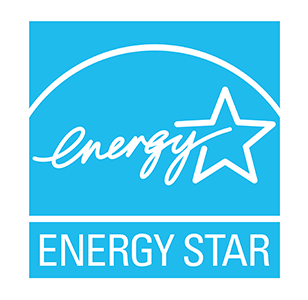
Recycled Materials
- Made with 90% post-industrial recycled magnesium aluminum bottom cover.
- Features 75% post-industrial recycled aluminum top cover.
- Contains an average of 30% post-consumer recycled plastic content.
- Maximizes the use of post-consumer recycled plastics and metals where possible.
- Top Cover: 75% Post-industrial recycled aluminum.
- Touchpad Module: 75% Post-consumer recycled aluminum.
- Bottom Cover: 90% Post-consumer recycled magnesium aluminum.
- Input Modules: 35% Post-consumer recycled aluminum.
- Expansion Bay Modules: 35% Post-consumer recycled plastic.
Hazardous Substance Free
General Material & Chemistry
- The chassis is crafted from high performance materials like thixomolded magnesium alloy and machined aluminum.
- The internal design features captive fasteners, clear labels, and QR codes for easy customization and repair.
- Materials are chosen for both durability and environmental impact.
- Materials are selected that have robust recycling supply chains available at end of life.
Energy & Emissions
- All shipments are fully carbon-offset.
- Carbon capture and sequestration can be purchased in the Framework Marketplace to make the laptop carbon neutral.
- Logistics-based carbon footprint is tracked.
- Logistics impact is minimized through FedEx’s International Priority Direct Distribution program for consolidated shipping.
- Carbon offsets are purchased through Flexport and Carbonfund.org for all freight.
- Carbonfund.org website shows initiatives for carbon offsets, including reforestation, more efficient stoves, and solar and wind farms.
- Buying offsets is not considered a perfect solution.
- Opportunities are continually investigated and invested in to reduce carbon output altogether across manufacturing, logistics, and product lifecycle.
- Carbon capture is offered in the Framework Marketplace in quantities matching the estimated impact of manufacturing a Framework Laptop.
- A partnership with Running Tide, a startup, involves sinking carbon in the ocean through floating bio-buoys that grow kelp micro forests.
- Kelp micro forests eventually sink to the ocean floor, sequestering carbon for hundreds to thousands of years.
- The carbon sequestration industry is brand new, and Running Tide is one of the first companies to deliver practical carbon capture at commercial scale.
- Opportunities are continuously sought to fund creative startups in this industry to collectively scale up from kilotons to megatons and eventually the gigatons needed to head off climate change.
- AMD Ryzen™ 7040HS processors offer incredible performance and power efficiency.
- An efficient, high-throughput cooling system was developed in collaboration with Cooler Master.
- The thermal system uses a Honeywell PTM7958 phase change thermal interface, three heatpipes, and two fans that keep CPU performance stable and quiet.
- The system can switch to an Expansion Bay Shell to use integrated graphics for a thinner and lighter configuration, which can impact power efficiency.

Packaging
- 100% recyclable materials are used for packaging.
- Packaging is made of 100% recycled materials and with the least amount of materials possible.
Longevity & End-of-Life
- Designed to be repaired and upgraded to last as long as needed.
- Upgradeable, modular graphics allows swapping and upgrading peripherals independently, including discrete GPUs.
- Hot-swappable Input Modules enable customization of keyboard layout.
- The Expansion Card system lets users choose exactly the ports they want and where they want them.
- The Mainboard is upgradeable to new CPU generations.
- Designed to be opened, with an intuitive internal design for effortless customization and repair.
- All models are upgradeable to 64GB of memory and 10TB of storage.
- Every part has a scannable QR code for documentation, repair guides, and parts.
- The single best way to reduce the environmental impact of electronics is to make them last longer.
- Empowering consumers and businesses with the right to repair is key to enabling devices to last longer.
- All replacement parts are available on the Framework Marketplace and can be easily swapped using step-by-step guides.
- Every laptop purchase includes a Framework Screwdriver, the only tool needed for repairs and upgrades.
- Modules are designed to have uses beyond the life of the laptop they started in.
- To prevent the creation of e-waste through upgrade behavior, a 3D-printable case for the Framework Laptop 13 Mainboard was released.
- A partnership with Cooler Master created the new Cooler Master Mainboard Case to extend the life of the Mainboard as a standalone computer.
- Open source design documentation and CAD for additional modules have been released on GitHub.
- A refurbished program allows purchase of excellent-quality refurbished products, giving a second life to returned goods.
Supply Chain & Social
- Open Source Ecosystems: Design files and documentation for Input Modules, Expansion Bay system, Expansion Cards, and Embedded Controller firmware are open source.
- The impact on people and the planet is considered in every choice made.
- Logistics-based carbon footprint is tracked.
- Logistics impact is minimized through FedEx’s International Priority Direct Distribution program for consolidated shipping.
- Carbon offsets are purchased through Flexport and Carbonfund.org for all freight.
- Carbonfund.org website shows initiatives for carbon offsets, including reforestation, more efficient stoves, and solar and wind farms.
- Buying offsets is not considered a perfect solution.
Specs
- Ram: 16GB
- SSD: 512GB
- CPU: AMD Ryzen™ 7 7840HS
- OS: Windows 11
- Screen Size: 16"
- Resolution: 2560x1600